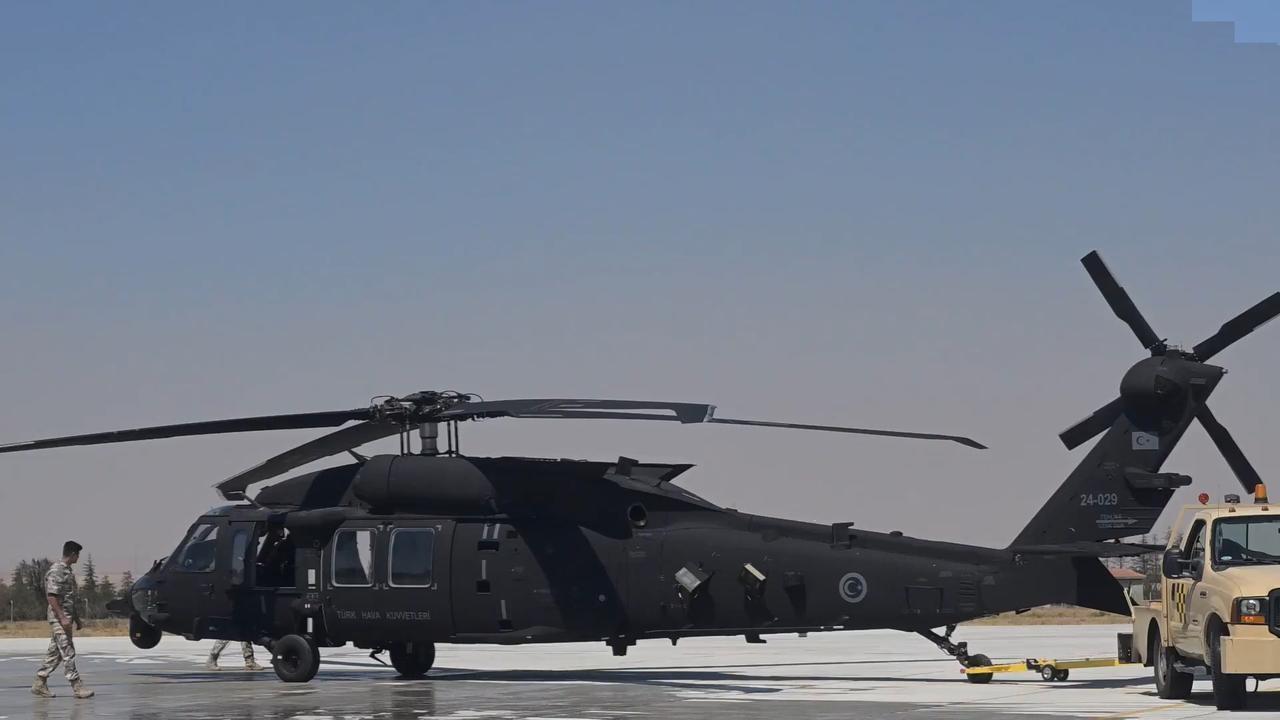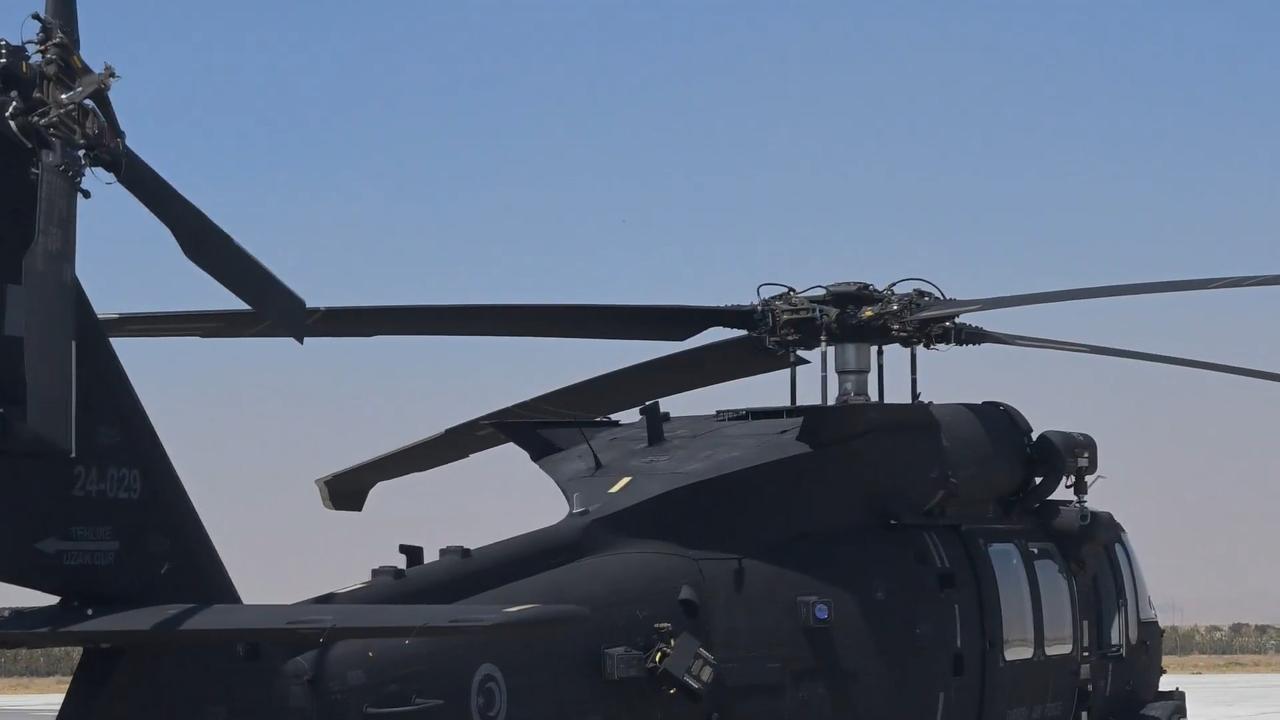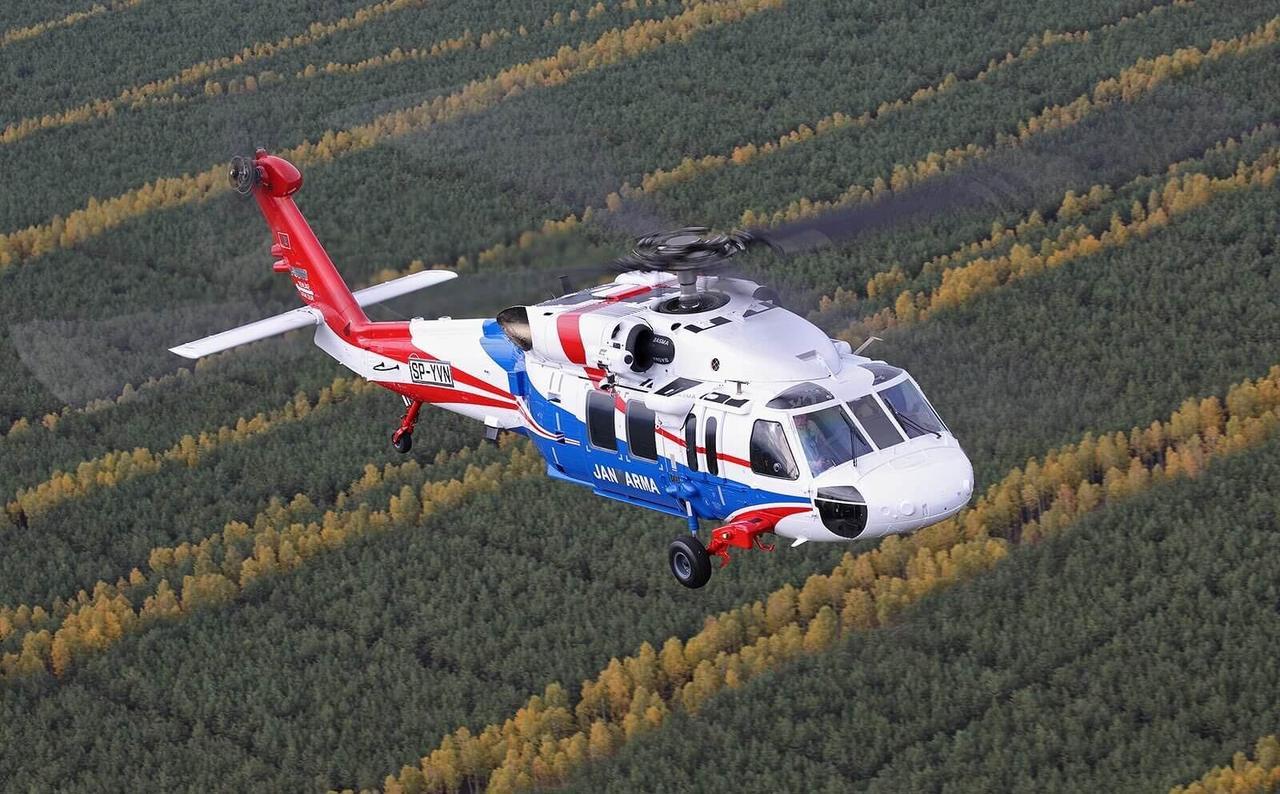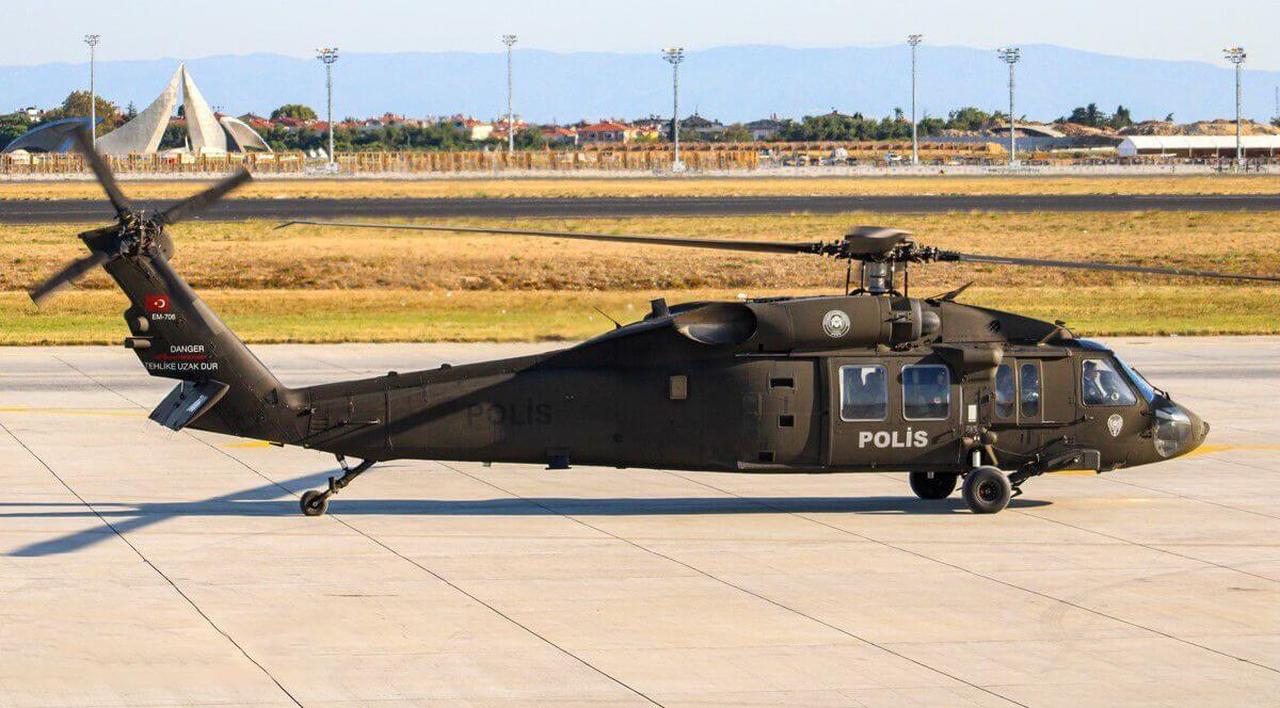The Turkish Air Force inducted its fourth T-70 utility helicopter during a ceremony at the 3rd Main Jet Base Command in Konya on Sept. 3, even as Lockheed Martin announced it had partially suspended the program due to U.S. sanctions.
"Within the scope of the T-70 General Purpose Helicopter Project, the acceptance activities for the fourth helicopter have been completed.
The helicopter was ceremonially added to the inventory at the 3rd Main Jet Base Command of our Air Force Command," the Turkish Ministry of National Defense said on the social media platform X.
The Turkish Air Force Command has once again added one of the most equipped T-70s to its inventory.
Fully equipped package from Aselsan's HEHSIS/HEWS (Helicopter Electronic Warfare Self-Protection System), again developed by Aselsan; ASELFLIR-400/410 EO/IR camera.
This helicopter might be the Turkish Air Force's second T-70 helicopter, which was also fully equipped in this way.

Lockheed Martin announced in its Jan. 28, 2025, annual financial report that it partially stopped work on the Turkish Utility Helicopter Program (TUHP) effective Oct. 5, 2024, citing force majeure due to U.S. government sanctions imposed on Turkish entities.
"We also have a number of contracts with Turkish industry for the Turkish Utility Helicopter Program (TUHP), which anticipates co-production with Turkish industry for production of T70 helicopters for use in Türkiye, as well as the related provision of Turkish goods and services under buy-back or offset obligations, to include the future sales of helicopters built in Türkiye for sale globally," Lockheed Martin stated in its report.
"In 2020, the U.S. government imposed certain sanctions on Turkish entities and persons that have affected our ability to perform under the TUHP contracts, and we have provided force majeure notices under the affected contracts. We partially stopped work on TUHP effective October 5, 2024," the defense company noted.
"We are currently in discussions with our customer regarding the path forward for the program in light of the continued impact of the sanctions on our ability to perform under the TUHP contracts and our decision to partially stop work," the company added.
"As of Dec. 31, 2024, cumulative losses related to development work for the program remained insignificant, and the program remains in a contract liability position on the balance sheet."
"The TUHP contracts may be negotiated to be restructured or terminated, either in whole or in part, and as a result, we could be at risk of recording significant reach-forward losses in future periods," Lockheed Martin stated.
"Additionally, our customer and subcontractor have asserted that we do not have the contractual right to stop work. If we are unable to reach an agreement in the near term, we or our customer could elect to pursue other relief or remedies, which could result in a further reduction in sales, the imposition of penalties or assessment of damages, and increased unrecoverable costs, which could be material to our financial results," the company stated in the report.

Despite the suspension, Türkiye has maintained production of airframes and components domestically, allowing deliveries to continue at a slower but consistent pace.
The program has already completed an initial batch of 39 helicopters, with cumulative development losses remaining minimal as of Dec. 31, 2024, according to Lockheed Martin.
The latest delivery follows the Air Force's third T-70 received in August 2025, continuing a sequence of staged acceptances that began in December 2022 with the first delivery to the Gendarmerie General Command.
The program's continuation depends on negotiations between Ankara and Washington, with the remaining 70 helicopters still subject to U.S. congressional decisions.
The T-70 program, valued at approximately $3.5 billion, calls for the production of 109 helicopters to be delivered over 10 years to six different users: the Land Forces Command, Air Force Command, Special Forces Command, Gendarmerie General Command, General Directorate of Security, and General Directorate of Forestry.
Turkish Aerospace Industries (TAI) serves as the prime contractor, with key subcontractors including Aselsan for avionics, TEI for licensed production of T700-TEI-701D engines, Alp Aviation for dynamic components and landing gear, and Sikorsky as the platform originator with the S-70i model as the base design.
Under the program, TAI manufactures all main components, including the cabin, cockpit, tail cone, horizontal and vertical tail, main and tail rotor blades, and conducts final assembly, testing and integrated logistics support.

The Turkish Utility Helicopter Program originated in the mid-2000s as Türkiye sought to replace and expand its fleet of multipurpose helicopters with a domestically produced platform.
An initial attempt in 2005 was cancelled, but the project was relaunched in 2009 with bids from AgustaWestland's AW149 and Sikorsky's S-70i.
In 2011, following evaluation by the Defence Industry Executive Committee, Sikorsky's S-70i was selected as the basis for licensed local production.
The contract, signed in 2014 and becoming effective in 2016, aimed to provide not only helicopters for Turkish armed forces and civil agencies but also a technology-transfer pathway to strengthen the domestic industry.

The T-70 helicopter features a maximum takeoff weight of 22,000 pounds (9,980 kilograms), with capacity for two crew members and 12 passengers.
The aircraft has a cabin area of 88 square feet and can carry a maximum external load of 9,000 pounds (4,082 kilograms).
Performance specifications include a maximum cruise speed of 160 knots (296 kilometers/hour), a service ceiling of 20,000 feet (6,096 meters), and a hover-in-ground-effect ceiling of 15,000 feet (4,572 meters) at sea level.